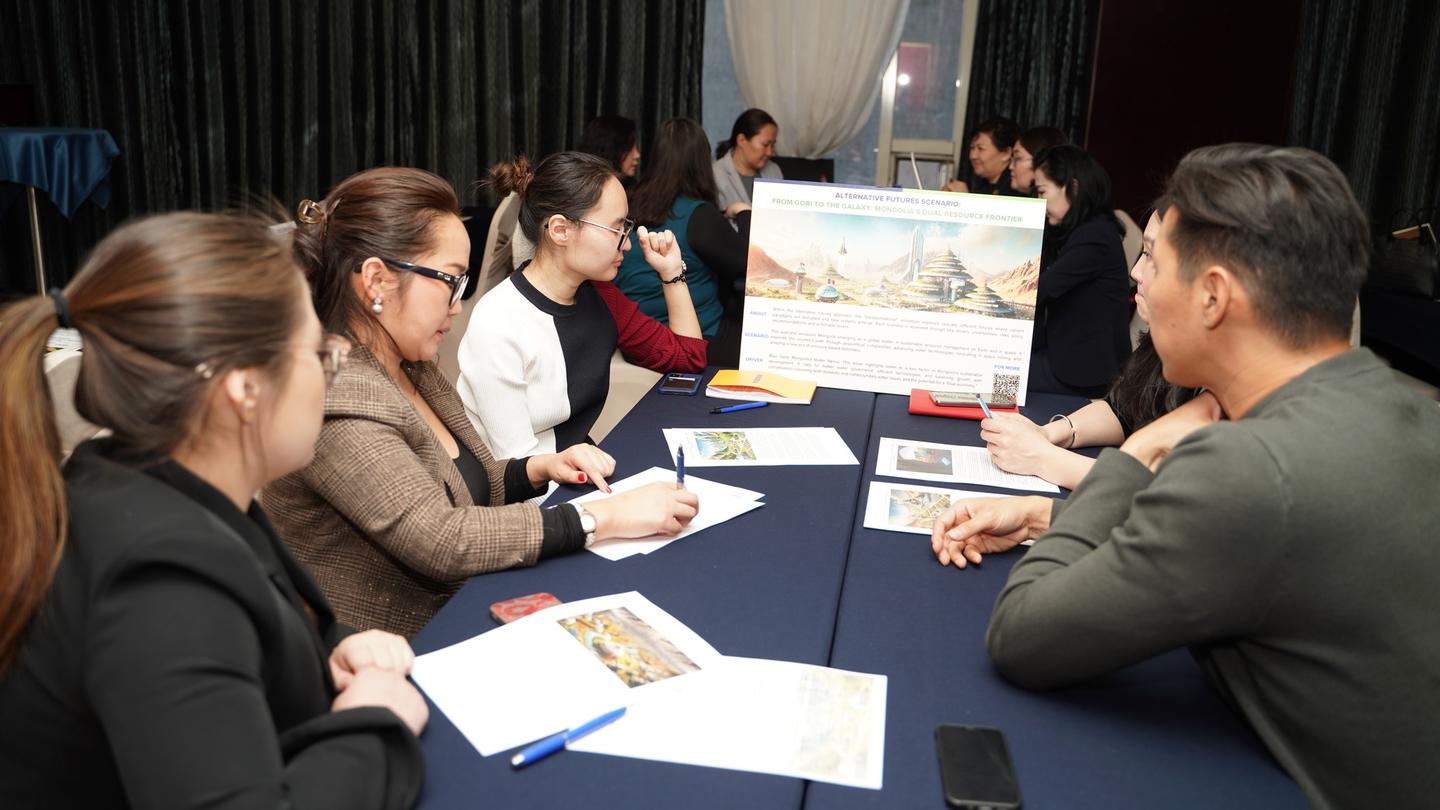Preparing the next generation of executives has become one of Mongolia’s most urgent priorities. Industries are changing at a pace the country has never experienced before—mining is becoming more automated, banks are digitizing, manufacturing is modernizing, and technology startups are moving from early-stage to scale-up. All of this is reshaping what it means to be a leader. Companies today are looking for managers who are more than operationally strong. They want strategic thinkers, culturally aware decision-makers, and leaders who can guide teams through uncertainty. That demand has fueled major growth in leadership development, executive coaching, and management training programs across the country.
This guide explores the core programs shaping Mongolia’s future leadership landscape and why they matter for both individuals and organizations.
Why Mongolia Needs Stronger Executive Training Pipelines
Mongolia’s workforce has many strengths—adaptability, technical knowledge, and high work ethic among them. But several structural challenges make executive development more critical:
1. Rapid Industry Transformation
Digitalization in banking, automation in mining, and the expansion of professional services mean executives must handle new forms of complexity. Traditional management alone isn’t enough.
2. The Talent-Pool Is Small
Mongolia’s labor market is tight. Senior managerial roles are difficult to fill, especially in finance, technology, heavy industry, and operations. Companies that don’t invest in internal leadership pipelines often struggle later.
3. Companies Are Scaling Faster
More firms are moving from local competition to regional partnerships, cross-border operations, and investor-driven growth. This creates a need for stronger strategic and cross-cultural leadership skills.
4. Generational Leadership Transition
A younger generation is slowly taking on leadership roles. Many are capable but need structured development to match the responsibilities of executive positions.
Key Training Programs Preparing Mongolia’s Future Executives
Mongolia now has a growing ecosystem of high-quality leadership development providers. These programs offer diverse learning formats—from long-term executive education to project-based coaching and industry-specific training. Below are the most impactful categories.
1. Executive Leadership Academies & Corporate Training Centers
Several major institutions offer structured leadership programs that blend practical management training with modern business frameworks.
Business Council of Mongolia (BCM) Programs
BCM supports leadership development for managers in export-driven and strategically important industries. Programs emphasize governance, economic policy awareness, and cross-industry thinking.
Mongolian National Chamber of Commerce and Industry (MNCCI) Executive Programs
Focused on mid- to senior-level managers, these programs provide tools for organizational leadership, negotiation, and business strategy.
Large Corporate Training Centers
Major corporations such as leading banks, energy companies, and mining groups operate their own leadership academies. These programs often include:
Change management
Strategic execution
Advanced management methods
Team leadership and decision-making frameworks
Many companies consider these essential for building internal leadership pipelines.
2. International Executive Programs Accessed by Mongolian Leaders
Mongolian executives increasingly supplement local training with global programs. These offerings help them stay competitive and bring international best practices back to their teams.
Common options include:
Harvard ManageMentor & Harvard Leadership Online
Used by many Mongolian corporate training departments for structured leadership modules.
Asian Institute of Management
A popular destination for executive-level short courses on leadership, innovation, and organizational transformation.
Online Certificates (Coursera, LinkedIn Learning, edX)
These allow managers to quickly upskill in:
Strategic leadership
Digital transformation
People management
Financial leadership
Many employers now subsidize these programs.
3. Executive Coaching & One-on-One Leadership Development
Executive coaching is gaining traction among Mongolian CEOs, founders, and high-potential managers.
Companies use coaching to address:
Decision-making under pressure
Communication and influence
Team leadership and delegation
Career acceleration
Confidence and executive presence
Coaching provides tailored guidance that formal training programs cannot replicate.
4. Leadership Programs for Rising Managers
Not everyone in the pipeline is already a senior leader. Mongolia’s emerging management class needs programs that focus on foundational leadership skills, such as:
People Management & HR Leadership
Middle managers often request training on managing teams, giving feedback, and building trust.
Project Leadership
Growing companies rely heavily on project-based work. Training helps rising managers lead cross-functional teams more effectively.
Digital Skills for Managers
Many industries now require managers to oversee digital systems, automation, and data-driven operations.
This category is essential for preparing the next generation of executives.
5. Sector-Specific Leadership Programs
Different industries in Mongolia face unique leadership challenges, so specialized training is now more important than ever.
Mining & Energy
Programs emphasize:
Safety leadership
Operational excellence
Environmental and social governance
Managing large, remote workforces
Banking & Finance
Focus areas include:
Digital transformation
Risk and compliance leadership
Financial governance
Customer-centric strategy
Technology & Startups
Leaders in tech benefit from programs on:
Innovation management
Product leadership
Agile methodologies
Scaling teams
Public Sector & Policy Leadership
Government leadership training has expanded significantly, helping build a stronger administrative pipeline.
What the Best Leadership Programs Have in Common
Even with different structures and target groups, high-quality leadership programs share several important traits:
Practical learning over theory
Real-world case studies from Mongolia
Focus on decision-making and critical thinking
Peer learning with cross-industry insights
Strong mentoring and coaching components
Programs that blend these elements tend to deliver the strongest results.
How Employers Benefit from Investing in Future Leaders
Leadership training is not just a “nice-to-have.” For Mongolian businesses, it directly supports long-term performance.
1. Stronger Internal Talent Pipelines
Companies rely less on external hiring for senior roles when internal leaders are prepared.
2. Better Employee Retention
Employees who see career growth opportunities stay longer.
3. Stronger Adaptation to Change
Leadership skills help organizations stay resilient during market shifts.
4. Increased Productivity and Team Alignment
Good leaders raise the overall capability of the teams they manage.
5. Enhanced Corporate Reputation
Companies known for developing talent have more attractive employer brands.
What Professionals Gain from Leadership Development
For individuals, leadership training can accelerate career growth in meaningful ways:
Faster promotions
Higher compensation potential
Stronger professional networks
Better communication and negotiation skills
Confidence in managing complex responsibilities
Leadership training pays off across an entire career—not only in the current role.
Choosing the Right Program: What to Consider
With many options available, professionals should choose programs based on:
Relevance to current and future roles
Practicality instead of theoretical content
Track record of the trainer or institution
Flexibility with work schedules
Networking opportunities
Organizations should also look for programs that align with company strategy and long-term talent development goals.
Mongolia’s economic growth depends heavily on capable leaders who can navigate rapid changes across industries. As demand for leadership talent continues to rise, companies and professionals who invest in strong development programs will be better positioned for long-term success. Leadership training is not just about learning new skills. It’s about shaping how people think, decide, and inspire others—qualities that define the executives who will lead Mongolia into its next stage of development.


